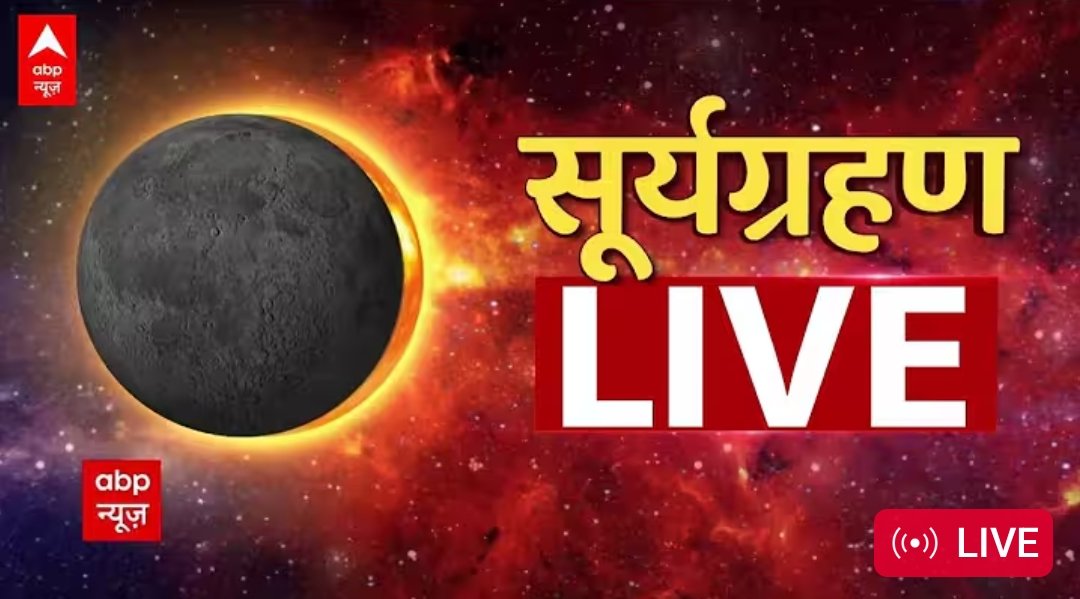Solar Eclipse Live Streaming 2025: Date, Timings in India, Visibility, Scientific Significance and Spiritual Beliefs.
A solar eclipse is one of the most fascinating celestial events witnessed by humankind. On 21st–22nd September 2025, sky watchers across India and many other parts of the world will experience a rare solar eclipse. This event is expected to attract astronomers, spiritual seekers, and the general public alike due to its visibility, scientific importance, and cultural significance.
According to the Indian Standard Time (IST):
- Eclipse begins: 21 September 2025, 10:59 PM
- Maximum eclipse (peak): 22 September 2025, 01:11 AM
- Eclipse ends: 22 September 2025, 03:23 AM
Although the timings make it an overnight event in India, the excitement and curiosity surrounding this solar eclipse remain immense. Let us explore the details of this eclipse, its astronomical background, religious beliefs, safety precautions, and its broader significance.
1. What is a Solar Eclipse?
A solar eclipse occurs when the Moon passes between the Earth and the Sun, blocking the sunlight either partially or completely. Depending on the alignment of these three celestial bodies, different types of solar eclipses occur.
- Total Solar Eclipse: When the Moon completely covers the Sun, turning day into darkness for a short period.
- Partial Solar Eclipse: When only a part of the Sun is covered by the Moon.
- Annular Solar Eclipse: When the Moon covers the center of the Sun, leaving a ring-like appearance (popularly known as the “Ring of Fire”).
- Hybrid Solar Eclipse: A rare type where the eclipse shifts between total and annular at different locations on Earth.
The September 2025 eclipse will be visible as a partial eclipse in India due to the time and geographical alignment. However, it may appear total or annular in other parts of the world depending on the location.
2. Solar Eclipse 2025: Timings in India
The Indian timings are especially important for astronomers and people following religious customs.
- Start of Eclipse (First Contact): 21 September 2025 at 10:59 PM (IST)
- Maximum Eclipse (Greatest Obscuration): 22 September 2025 at 01:11 AM (IST)
- End of Eclipse (Last Contact): 22 September 2025 at 03:23 AM (IST)
Since the eclipse occurs late at night, visibility in India may be limited, but many will still follow associated rituals and observe safety measures.
3. Where Will the Eclipse Be Visible?
The September 2025 solar eclipse will not be fully visible across the globe in the same manner. Some regions will witness it as a total or annular eclipse, while others will see it only partially.
- Best Visibility Zones: Certain parts of the Pacific Ocean, South America, and Africa.
- India: Only a partial eclipse will be visible. Since it occurs during late night hours, the Sun will already be set, reducing direct visibility for most regions. However, astronomical observatories and online live streams will cover the event.
- Worldwide: Astronomers expect breathtaking visuals in regions where the eclipse will be total or annular.
4. Scientific Importance of the Eclipse
Solar eclipses are not merely astronomical spectacles; they hold tremendous scientific value.
a) Studying the Solar Corona
During a total eclipse, the bright Sun is obscured, allowing scientists to study the faint outer layer of the Sun known as the corona. Observing coronal structures helps understand solar storms and space weather.
b) Testing General Relativity
Historically, solar eclipses provided evidence for Einstein’s theory of general relativity when starlight was observed bending around the Sun’s gravitational field.
c) Understanding Solar Activity
Eclipses give scientists the chance to monitor solar flares, prominence, and sunspots, which directly impact Earth’s climate, communication systems, and satellites.
d) Enhancing Public Awareness of Astronomy
Eclipses generate public interest in space science, motivating educational institutions to organize awareness programs, workshops, and stargazing sessions.
5. Cultural and Religious Significance in India
In India, solar eclipses have deep-rooted cultural, spiritual, and religious meanings. Ancient texts such as the Puranas and Jyotish Shastras (Vedic astrology) describe eclipses as cosmic events linked to the celestial demons Rahu and Ketu.
Common Beliefs and Practices
- Sutak Period: A few hours before and during the eclipse, many people avoid cooking, eating, or performing auspicious tasks.
- Spiritual Practices: Devotees chant mantras, recite holy scriptures, and take holy dips in rivers after the eclipse to purify themselves.
- Pregnant Women: Traditionally, pregnant women are advised not to step outside during the eclipse to avoid negative effects, though modern science does not support these claims.
- Charity and Donations: Many perform charitable acts after the eclipse, believing it brings good karma.
While science explains eclipses as natural phenomena, cultural traditions add a layer of spiritual depth for millions in India.
6. Safety Precautions During Solar Eclipses
Watching a solar eclipse without precautions can cause severe eye damage due to harmful solar radiation.
Safe Viewing Methods
- Eclipse Glasses: Use ISO-certified solar viewing glasses.
- Pinhole Projector: A simple DIY tool to safely project the Sun’s image on a surface.
- Welding Glass: Glass with a shade of 14 or darker can be used.
- Online Live Streams: Since visibility in India is limited at night, many people can watch through trusted live-stream platforms.
Avoid
- Looking directly at the Sun without protection.
- Using ordinary sunglasses, which are ineffective.
- Viewing through cameras, telescopes, or binoculars without proper solar filters.
7. Solar Eclipses in History
Throughout history, eclipses have been associated with myths, omens, and turning points.
- Battle of Halys (585 BCE): A solar eclipse reportedly stopped a war between the Medes and the Lydians.
- Einstein’s Relativity (1919): A total solar eclipse confirmed Einstein’s predictions about light bending.
- India’s Ancient Records: Astronomical texts such as the Surya Siddhanta document eclipses with remarkable precision.
These examples show how eclipses influence both science and society.
8. Myths vs. Science
Myths in India
- Eclipses are caused by the demon Rahu swallowing the Sun.
- Food cooked during an eclipse becomes toxic.
- Pregnant women must avoid cutting or stitching during the eclipse.
Science Explains
- Eclipses occur due to celestial alignment of the Sun, Moon, and Earth.
- There is no scientific evidence that food becomes poisonous during eclipses.
- Harm to pregnant women is a myth, but avoiding direct Sun exposure is advised for everyone due to eye safety.
Important links
सूर्य ग्रहण किसके लिए शुभ है देखने के लिए यहां क्लिक करें
राशि वाइज प्रभाव देखने के लिए यहां क्लिक करें
सूर्य ग्रहण लाइव देखने के लिए यहां क्लिक करें साइट 1
सूर्य ग्रहण लाइव देखने के लिए यहां क्लिक करें साइट 2
NASA पर लाइव देखने के लिए यहां क्लिक करें
9. Do’s and Don’ts During the September 2025 Eclipse
✅ Do’s
- Use proper eclipse glasses.
- Watch live streams or astronomy programs.
- Engage in meditation or spiritual chanting if following traditions.
- Educate children about the science of eclipses.
❌ Don’ts
- Don’t view the Sun directly with naked eyes.
- Don’t believe in unverified superstitions.
- Don’t use unsafe optical devices without filters.
10. Upcoming Solar and Lunar Eclipses in 2025
2025 is an exciting year for sky enthusiasts:
- Solar Eclipse – 29 March 2025
- Solar Eclipse – 21–22 September 2025 (this event)
- Lunar Eclipse – 14 March 2025
- Lunar Eclipse – 7 September 2025
India will experience partial visibility for most of these, but global coverage will be available online.
👉 સૂર્યગ્રહણ લાઇવ જોવા માટે અહીં ક્લિક કરો
11. Frequently Asked Questions (FAQs)
Q1: Will the September 2025 solar eclipse be visible in India?
Yes, but only partially, and due to late-night timing, direct observation will be very limited.
Q2: What are the eclipse timings in India?
It begins on 21 September 2025 at 10:59 PM, peaks at 1:11 AM on 22 September, and ends at 3:23 AM IST.
Q3: Is it safe to watch the eclipse with bare eyes?
No. Looking directly at the Sun without proper protection can cause permanent eye damage.
Q4: What is the Sutak period for this eclipse?
The Sutak period traditionally starts 9 hours before the eclipse and ends after it concludes.
Q5: What spiritual practices are recommended during eclipses?
Many people chant mantras, meditate, and perform charity. However, these are personal choices based on belief.
Conclusion
The solar eclipse of 21–22 September 2025 is not just an astronomical event but also a cultural and spiritual occasion in India. With timings from 10:59 PM to 3:23 AM IST, the event highlights the wonders of celestial mechanics.
While science urges us to view eclipses as natural cosmic alignments, India’s rich traditions continue to treat them as significant spiritual moments. Whether you watch it for its scientific curiosity or observe it through rituals, the solar eclipse is a reminder of how vast and interconnected our universe truly is.
As the world looks to the skies on this special night, remember to stay safe, stay curious, and enjoy one of nature’s most spectacular.
Also Read : PMJAY Government Employees G Card Download

मै सरकारी एम्प्लोई हु और सरकारी भर्तिया और योजना के बारेमे अच्छी नोलेज रखता हु। मेरे लेख से आप नवीनतम सरकारी नौकरियों, सरकारी योजनाओं और लाभकारी सूचनाओं के बारे में विश्वसनीय और अद्यतन जानकारी प्राप्त कर सकते हैं। मेरा उद्देश्य भारतीय नागरिकों को रोजगार और विकास के अवसरों के बारे में अधिक जागरूक बनाना और इसके लिए प्रक्रियाओं को सुविधाजनक बनाना है।




